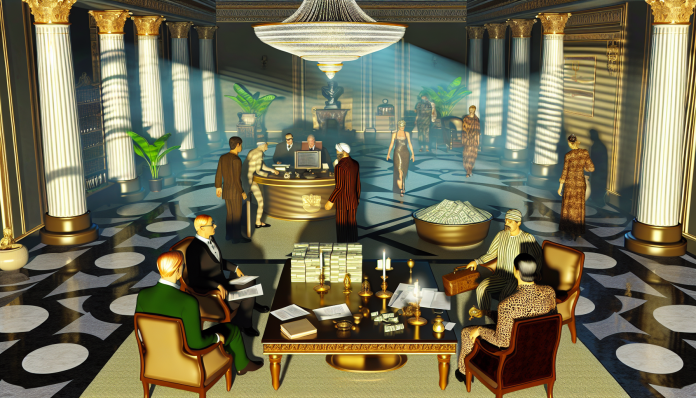Introduction
In the annals of history, few spectacles rival the riotous reputation of Roman emperors engaging in lavish orgies. During the time of Tiberius, Caligula, and Nero, these potentates were not merely rulers; they were embodiments of unrestrained indulgence and power. The Roman elite often traversed the delicate line between decadence and debauchery, showcasing an era where sexual freedom was intertwined with the fabric of governance. This article delves into the salacious scandals of these emperors, exploring how their societal contexts shaped attitudes toward sexuality and power dynamics.
The Scandal
One of the most notorious figures in this realm was Emperor Tiberius, who ruled from 14 to 37 CE. According to historical sources, he was said to have hosted extravagant orgies on the island of Capri, converting his private villa into a playground of excess. Suetonius, a Roman historian, chronicled Tiberius’s alleged proclivities in his work, The Twelve Caesars—stating that the emperor’s guards would often bring in “young boys and girls” to entertain the guests. The narratives suggest a shocking abandonment of social norms, with lights dimmed for the captivating performances and excesses that were commonplace.
Caligula, Tiberius’s successor, further heightened the scandalous milieu. He was noted for turning the imperial court into a circus of sensuality, famously leveling the highest degrees of corruption, which emerged from both social elite circles and the plebeians alike. The infamous incident when Caligula reportedly transformed the Senate into a brothel epitomizes this scandal; not only did he flaunt his sexual prowess and unabashed vulgarity, but he also weaponized sex as a tool of political power.
- Summary of Ts and Cs:
- Key Players: Tiberius, Caligula, and Nero
- Setting: Roman Empire, 1st Century CE
- Culminating Event: Tiberius’s Capri orgies and Caligula’s Senate scandal
Moral and Cultural Analysis
The reactions to these scandals were complex. To contemporaries, such behaviors ranged from scandalously entertaining to shocking. While the lower classes tended to revel in the tales of their rulers’ excesses, moralists lamented the decline of civic virtue. Emperors like Tiberius wielded their appetites as a means of signifying power—the more conspicuous the debauchery, the more underscored the ruler’s absolute authority.
Consequences for each emperor varied. Tiberius retreated from public life as rumors of his exploits proliferated, and his subsequent reputation earned him infamy. Caligula met a violent end, assassinated by his own praetorian guard, a poignant reminder that unchecked power can provoke violent backlash.
In stark contrast, had these same events unfolded in today’s societal structure, the backlash would be significantly different. In an era marked by movements advocating for sexual liberation and gender equality, the orgies of ancient Rome might evoke less shock than reflections on how power dynamics correlate with sexual exploitation. Modern audiences might scrutinize these figures’ actions not just in the light of personal debauchery but through a lens of consent, agency, and the implications of leadership ethics.
- Comparing then and now:
- Ancient Reaction: Lavish indulgence accepted; moral condemnation from elite.
- Modern Reaction: Analysis through consent frameworks; potential calls for accountability.
The scintillating and scandalous exploits of Roman emperors serve as both a captivating history lesson and a dialogue about the evolving standards of morality and power. The cries of abandon that echoed through the marble halls of Rome still resonate today, inviting reflection on the intertwining paths of sexuality, authority, and societal values.

